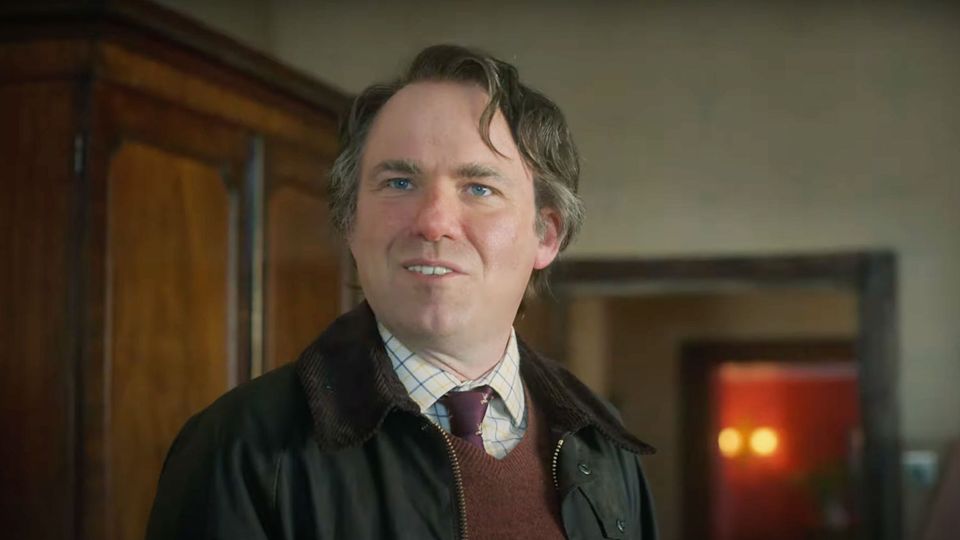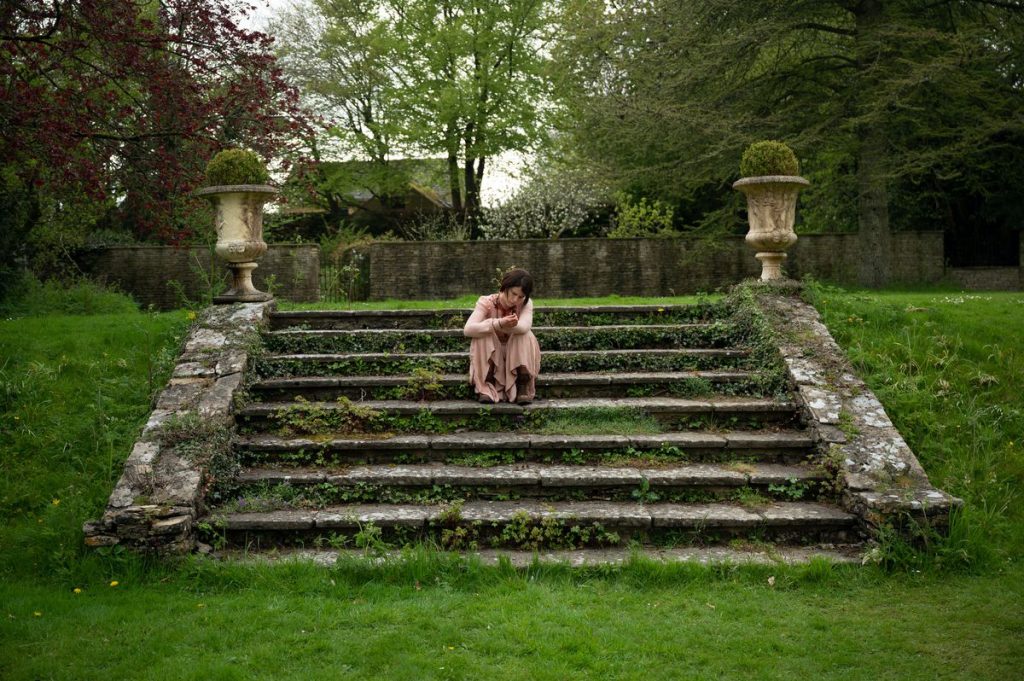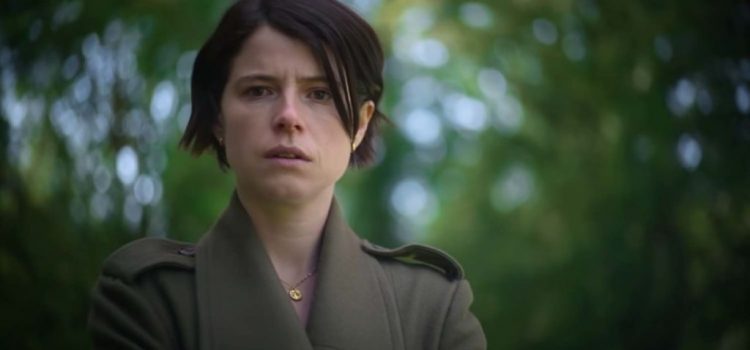By Alex McPherson
Flawed and deeply unsettling, director Alex Garland’s “Men” emerges as one of 2022’s most thought-provoking films thus far — at once ambiguous and graphically blunt, absurd yet grounded in very real truths baked into society’s fabric.
The film centers around Harper (Jessie Buckley), who experiences the traumatic loss of her ex-husband, James (Paapa Essiedu), that may or may not have been suicide. She travels to the bucolic Cotswolds countryside to heal and process her grief in relative peace. The context around James’ death is left vague; further information is doled out periodically via flashbacks to that fateful day, but Harper remains plagued by the belief that she, in some way, is responsible for his death.
Upon arriving at the spacious cottage owned by Geoffrey (Rory Kinnear) — a quirky, slyly patronizing chap with huge teeth — she initially enjoys the town’s calming atmosphere and lush, verdant surroundings, but serious issues arise, and her emotional vulnerability is preyed upon by malevolent forces that stretch back throughout human history.
While out on a quiet walk in the forest, Harper is stalked by a naked man, who then tries to enter the house, only to be apprehended by the police and released soon afterwards. Townsfolk accuse Harper of overreacting. Unable to stop thinking about James and their last moments together, she visits a church and bears her soul to the vicar, who then gaslights her and blames her for James’ death.
To make matters even worse, all of the men Harper encounters have the same face (all portrayed by Kinnear with impressive range and technique), insidiously exploiting her tragic past to exert control over her body and personhood.
As the plot progresses further and further into bloody horror carnage, “Men” can’t wrangle its numerous elements into a fully cohesive whole, but Garland’s film is packed with so much craft — acting, cinematography, score, editing, gross-out body horror effects — that it’s difficult not to appreciate the effort behind it all.
The film’s points on toxic masculinity and the power structures that support it aren’t exactly “novel,” but Garland’s go-for-broke approach to the material renders it damn near impossible to forget, for better and worse.
Indeed, “Men” is a challenging film to review. From a stylistic perspective, the atmosphere Garland creates is transfixing, recalling folk-horror classics like “The Wicker Man,” preventing viewers from having a clear picture of what’s actually going on. The English countryside bursts with eye-popping hues that create a sense of heightened reality, of tranquility disturbed.
Despite the beautiful scenery, there’s always something off about Harper’s environment, whether a mysterious ripple in a pond or a lacerated figure lurking just off-screen. Similarly, flashbacks are bathed in red lighting, reflecting Harper and James’ raw, turbulent emotions. The editing — opting for patient long takes and dreamlike rhythms that weave together Harper’s present with memories she cannot stop reliving — is mesmerizing, accompanied by an off-putting, choral-inflected score that furthers the uneasy atmosphere.

Buckley and Kinnear are outstanding, although the latter is ironically given more to do than the former. Harper is a sadly passive presence acted upon by outside forces for much of the runtime, and we never learn much about her backstory except for her fraught relationship with James. Buckley’s passionate performance endears us to Harper from the get-go, but “Men” could have delved even deeper into her psyche, as it eventually eschews focus on her specifically to target larger societal issues.
Kinnear, chewing scenery to a pulp, inhabits each of his 10 characters with distinctive quirks and levels of menace, from a schoolboy with an awkwardly transplanted CGI face to a casually dismissive policeman. Whether or not all these men are, in fact, the same person remains up to interpretation, and it’s admirable how “Men” refuses to answer this question definitively.
What really matters, though, is that each of Kinnear’s characters emphasizes different facets of misogyny, entitlement, and insecurity — different sides of the same coin, coming together to form a monstrous whole.
As the terror ramps up, the ideas “Men” presents are more compelling than the execution, which — for all its swing-for-the-fences gusto — undermines the more sobering points Garland’s trying to make, and becomes difficult to take seriously in the blood-soaked finale. Biblical and literary allusions abound — most glaringly, the Garden of Eden — along with blunt historical references to such figures as The Green Man, representing the cycle of life, death, and rebirth.
“Men” seems to be emphasizing the deep-rooted power dynamics running back millennia, but Garland’s conveyance of the idea is blunt, visceral, and difficult to take fully seriously. This is especially true regarding the ludicrously unforgettable ending set-piece, a sequence so over-the-top and drawn-out that it distracts from Garland’s serious, otherwise intriguing commentary.
“Men” is ultimately a mixed bag, with plenty to relish and critique in equal measure. Garland has created a work that will certainly get viewers talking, however, and at least spark some reflection on harmful gender dynamics that persist to this day.

“Men” is a 2022 horror-science fiction drama directed by Alex Garland and starring Jessie Buckley, Rory Kinnear and Paapa Essiedu. It is Rated R for disturbing and violent content, graphic nudity, grisly images and language.and runs 1 hour, 40 minutes. It is available in theaters beginning May 13. Alex’s Grade B.
Alex McPherson is an unabashed pop culture nerd and a member of the St. Louis Film Critics Association.




